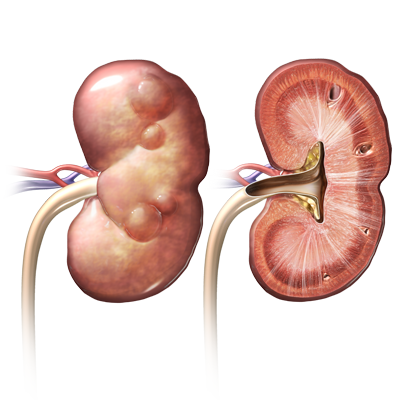According to a recent study, a specially formulated nutrient supplement was added to the diet and promising results were determined in monitoring advanced chronic kidney disease in dogs.
Chronic Kidney Disease (CKD) causes irreversible loss of kidney function and is often considered a disease of senior adult animals. The severity of this disease is divided into different stages (1-4) according to the International Renal Interest Association (IRIS). Even if radical treatment is not possible, conventional and alternative treatment methods are used. Besides, diet adjustments and periodic laboratory tests are made to follow and hold the disease under control.

The results of the research carried out by Elisa Martello and her team to test a new nutritional supplement for the control of the disease were published in the journal Veterinary Sciences (Impact factor = 2.304), a journal of the very prestigious MDPI. In the study, which included 30 dogs with CKD, the animals were divided into two groups. They added 15 different nutritional supplements with a special formulation that they prepared in addition to a commercial kidney diet to one and a commercial kidney diet to the other. These included Lactobacillus acidophilus D2/CSL, Olea europaea L. extract, chitosan, calcium lactate-gluconate and fructooligosaccharides. The animals were fed in accordance with the study procedure for 90 days, and at the end, clinical examinations and laboratory analyses were made, and the results were evaluated.
According to the results of the researchers, it was determined that creatinine values, which is a critical marker of kidney disease, decreased significantly in the group that took the nutritional supplement they prepared.
The mean creatinine value, which was 3.17 mg/dL at the beginning, decreased to 2.4 mg/dL at the end of the study. There was no significant change in the group that did not take the nutritional supplement. Similarly, blood urea nitrogen (BUN), phosphorus (P), symmetrical dimethylarginine (SDMA), urine protein:creatinine ratio (UPC), c-reactive protein (CRP-inflammation marker) and reactive oxygen metabolite derivative compounds (d-ROM) values were also found to decrease in the group that received nutritional supplements. In this sense, the regression of oxidative stress can be considered an important result. It is known that oxidative stress directly contributes to the progression of CKD by causing tissue damage and inflammation.
The researchers also emphasized that their results covered a small sample group and most animals with third-stage CKD. In other words, the study data represented a limited group. This type of study needs to be improved by performing a larger study that includes both a larger population of dogs and different analysis parameters. Researchers emphasised this situation and actually opened a new door.
As a conclusion of the study, it was stated that this new nutritional supplement may be a good approach to controlling metabolic, inflammatory, and oxidative processes in animals with advanced CRF.
Further reading: Martello E, Perondi F, Bruni N, Bisanzio D, Meineri G, Lippi I. Chronic Kidney Disease and Dietary Supplementation: Effects on Inflammation and Oxidative Stress. Vet Sci. 2021 Nov 15;8(11):277. doi: 10.3390/vetsci8110277. PMID: 34822650.
Published on: 22 December 2021Edited on: 13 October 2022

